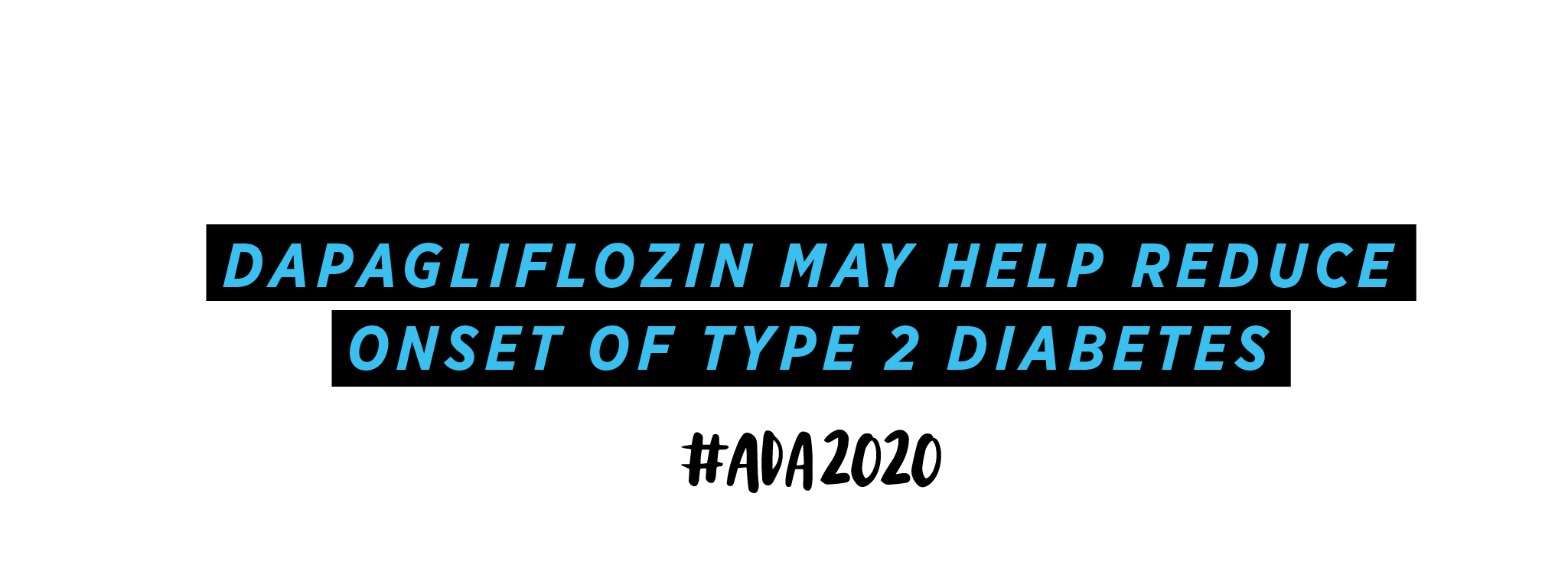Dapagliflozin May Reduce the Onset of Type 2 Diabetes
Research presented at the American Diabetes Association’s 80th Scientific Sessions revealed that the SGLT-2 Inhibitor, dapagliflozin, may reduce the onset of type 2 diabetes when used in patients with heart failure. Analysis of the large international DAPA-HF trial showed that dapagliflozin, known as the brand name Farxiga, reduced new-onset diabetes by 32 percent with 4.9 percent of patients developing type 2 diabetes compared to 7.1 percent in the placebo group, the group who did not receive the drug.
Of the 2,605 participants who did not type 2 diabetes at the start of the study, 1,298 of them received the SGLT-2 inhibitor and 1,307 received a placebo. Onset type 2 diabetes was defined by an A1c of or greater than 6.5 percent after two consecutive visits.
“Our sub-study within the DAPA-HF trial demonstrates that diabetes prevention could be considered an additional benefit of dapagliflozin, whose main effect, of course, is to reduce cardiovascular mortality and worsening heart failure in patients with heart failure and reduced ejection fraction,” said Silvio Inzucchi, MD, lead investigator, and professor of medicine at the Yale University School of Medicine. “The 32 percent relative risk reduction compares favorably with the 31 percent reduction with metformin, as reported in the Diabetes Prevention Program. We will need to do more studies to see if this effect extends to patients without heart failure and reduced ejection fraction and to evaluate how durable the benefit might be and how long diabetes prevention persists after the discontinuation of therapy.”
Participants who developed diabetes had higher average A1C levels, greater body mass index and lower eGFR at the beginning of the study than those who did not develop diabetes. SGLT-2 inhibitors are oral agents designed to help lower blood glucose by preventing glucose from being absorbed in the kidney. The end result is glucose is excreted through urine.
About the DAPA-HF Trials
The original DAPA-HF trials enrolled 4,774 participants, with an average age of 66 years old. The goal of the study was to assess the impact of SGLT-2 inhibitors on worsening heart failure, including hospitalization or an urgent care visit resulting in treatment for heart failure, as well as death from cardiovascular disease.
Researchers concluded that the SGLT-2 inhibitor, dapagliflozin, reduced the risks of heart failure and resulted in fewer symptoms of heart failure. The oral agent was as effective in 55 percent of trial participants without diabetes as in those with diabetes.
What are SGLT-2 Inhibitors?
SGLT-2 inhibitors are oral tablets used to treat type 2 diabetes by preventing the kidneys from reabsorbing glucose back into the blood. As a result, glucose is excreted through urine, and glucose in the blood is lowered. Known brand names include Invokana (canagliflozin), Farxiga (dapagliflozin) and Jardiance (empagliflozin).
Though these drugs were initially designed to help people with diabetes manage their blood glucose, they’ve been approved to treat other health issues. In the fall of 2019, Farxiga was approved in the United States to treat heart failure in adults with type 2 diabetes and other cardiovascular risks. Shortly before, Invokana received U.S. Food and Drug Administration (FDA) approval to treat diabetic kidney disease (DKD). Prior to the DKD approval, Invokana was used to reduce the risk of major cardiovascular events such as heart attacks, stroke, or death in adults with type 2 diabetes with a history of cardiovascular disease.
If you’re interested in learning if SGLT-2 inhibitors may be right for you, please consult your healthcare team.
For more coverage of the ADA 2020 Scientific Sessions, click here.
Learn more about SGLT-2 Inhibitors and other oral medications to treat type 2 diabetes here.





